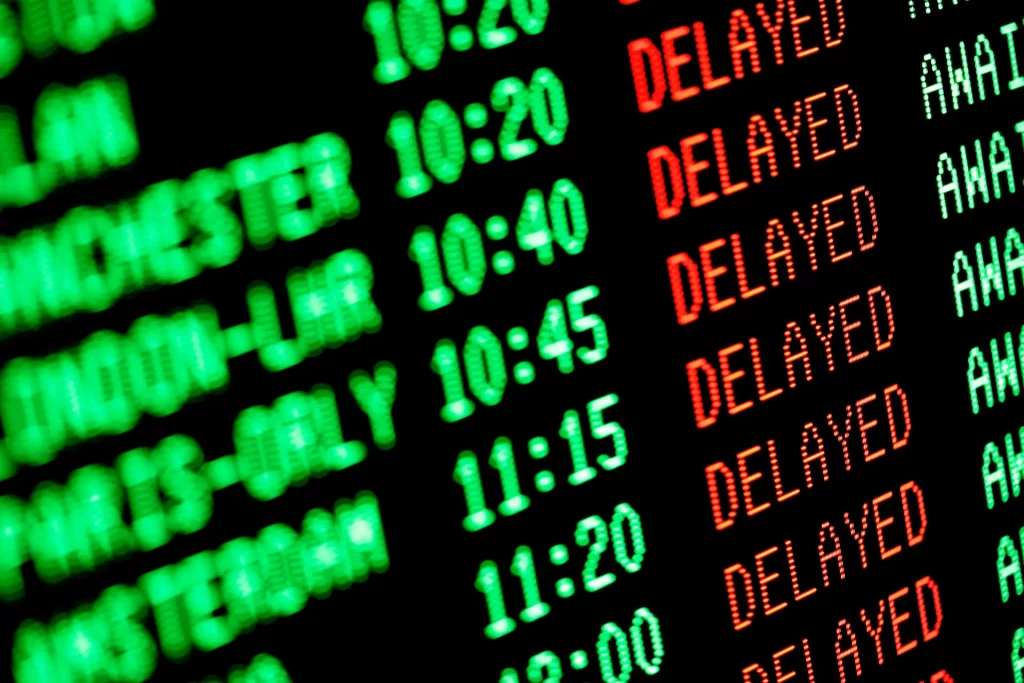EXTRAORDINARY CIRCUMSTANCES
Check your compensation claim online in just 2 minutes

Fast &
Easy:
No success –
no costs
Satisfied customers speak for us
Safe and confidential



The EU Air Passenger Rights Regulation (EC) No. 261/2004 protects passengers from inconvenience caused by delays, cancellations or denied boarding. In certain situations, however, airlines are released from their obligation to provide compensation if there are extraordinary circumstances.
What are extraordinary circumstances?
“Extraordinary circumstances” are situations that are beyond the airline’s control and which it cannot prevent, even if it has taken all reasonable measures. Although these circumstances release the airline from the obligation to pay compensation, it must continue to offer care and alternative transportation options.
Examples of extraordinary circumstances
- bad weather:
- Severe storms, thunderstorms or snowfall: if extreme weather conditions affect the safe operation of the flight, this may be considered an extraordinary circumstance.
- Volcanic eruption: Ash clouds caused by volcanic eruptions can disrupt air traffic, as was the case with the eruption of Eyjafjallajökull in Iceland in 2010.
- security threats:
- Terrorist attacks or bomb threats: Events that threaten the security of air travel, such as attacks or threats, are considered extraordinary circumstances.
- Hijackings: The hijacking of an aircraft or an attempted hijacking is an extraordinary circumstance.
- political instability:
- Riots or wars: flight disruptions due to political unrest, civil wars or military conflicts are considered exceptional circumstances.
- strikes:
- External strikes: strikes by external parties such as airport employees, air traffic controllers or security services are extraordinary circumstances.
- Internal strikes: Strikes by airline employees may be considered extraordinary circumstances if they are unforeseeable and beyond the airline’s control.
- technical problems:
- Hidden manufacturing defects: technical defects due to manufacturing defects that were not discovered until after manufacture are considered extraordinary circumstances.
- Bird strike: Collisions with birds can jeopardize flight safety and are considered extraordinary circumstances.
- airport infrastructure:
- Airport closure: If the airport closes due to safety or infrastructure problems, this may be considered an extraordinary circumstance.
- Damaged runways: Unexpected damage to runways may constitute extraordinary circumstances.


Check here free of charge and without obligation whether you are entitled to compensation
Check your compensation claim online in just 2 minutes
No extraordinary circumstances
There are situations that do not qualify as extraordinary circumstances, even though they may be unfavorable for the airline:
- normal technical problems:
- Routine problems or foreseeable technical defects do not fall under exceptional circumstances.
- known labor disputes:
- If internal strikes were foreseeable or the airline failed to respond adequately, they are not considered extraordinary circumstances.
- delayed aircraft rotation:
- If the airline caused the delay of a flight due to internal planning errors, this is not an extraordinary circumstance.
Rights of passengers
Passengers also have the following rights in exceptional circumstances:
- care services: Meals, accommodation, communication and transportation, depending on the waiting time.
- reimbursement or alternative transportation:
reimbursement of the ticket price or alternative transportation in the event of cancelled flights or delays of more than 5 hours.
Conclusion
“Extraordinary circumstances” are situations that are beyond the airline’s control. These can range from extreme weather and security threats to political instability. In such cases, airlines do not have to pay compensation, but they must continue to offer care services and provide alternative transportation.
